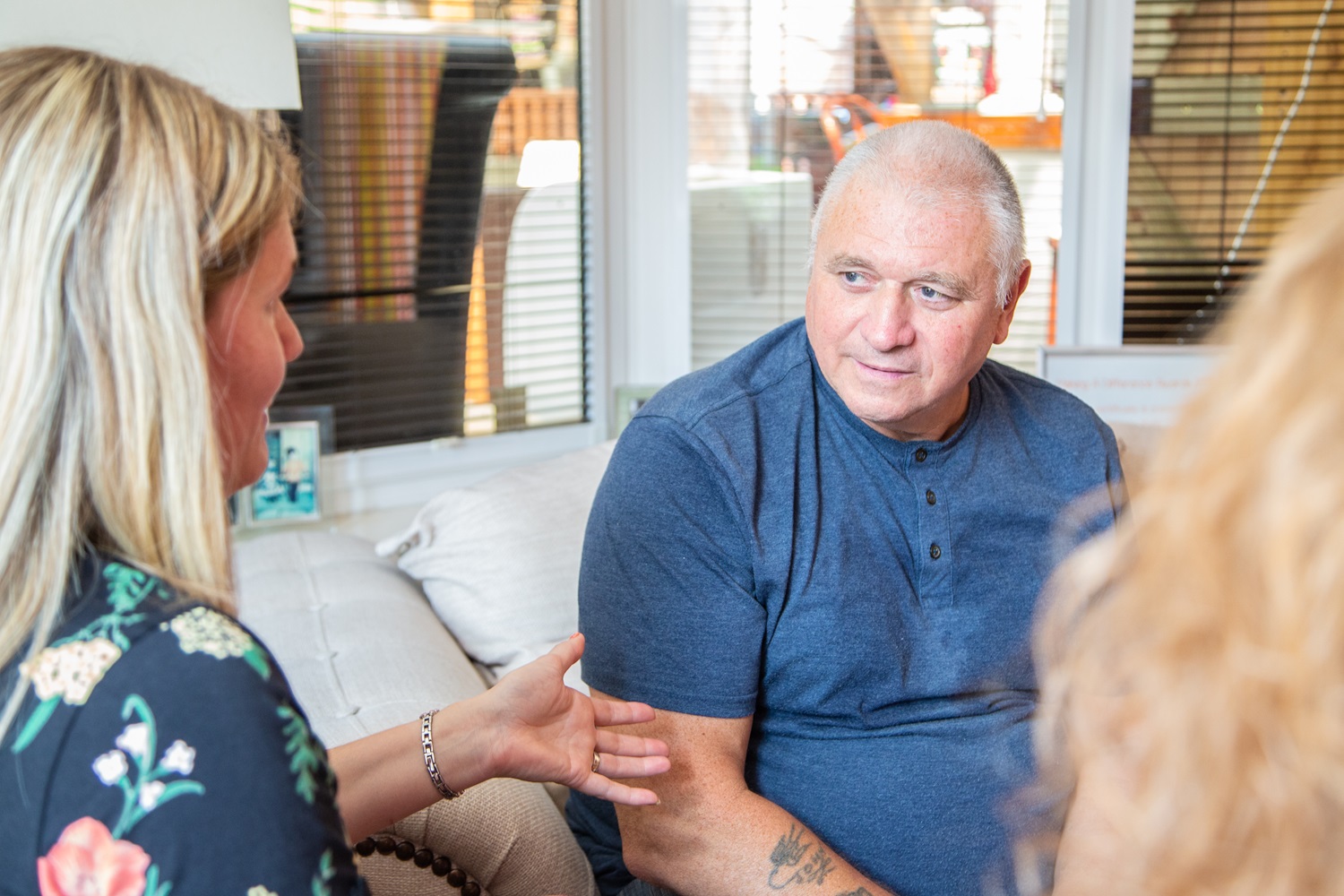
This Dementia Action Week (13-19 May), we're sharing advice about the first signs and symptoms of dementia and how to reach out for support.
Dementia can affect people of any age but is most common in people over 65. There are approximately 17,700 people in Surrey living with dementia, with that figure projected to rise more than 25 per cent to 22,600 by 2030, according to Surrey’s Joint Strategic Needs Assessment (an assessment of the current and future health and social care needs of the local community).
Lisa Bradbury, Consultant Nurse for Older People’s Services at our Trust said:
“There are over 100 types of dementia, the most common being Alzheimer’s Disease and Vascular Dementia.
“It’s important to look out for the early symptoms of dementia in yourself and your loved ones. The most common symptom is memory loss, which may include forgetting recent events or conversations, becoming increasingly repetitive in conversation and regularly misplacing objects at home.
“Other common symptoms are difficulties with planning and organisation, problems with language and finding the correct words, changes in visual perception and judging distances and changes in mood.
“The most important thing is to reach out for support if you need it. The thought of being diagnosed with dementia can be frightening for people, but an early diagnosis means access to treatment and support services. It can also enable people to prepare for the future and make informed choices so that they can live well with dementia.”
If you or a member of your family has been experiencing difficulties with memory for at least six months, please arrange to see your GP to discuss your concerns. If necessary, your GP can then refer you to specialist services for support and further assessment diagnosis and treatment.
Our Research and Development team also works with people who have been diagnosed with dementia to learn more about the condition and future treatments. You can learn more about current opportunities to take part in research on the Trust’s website.